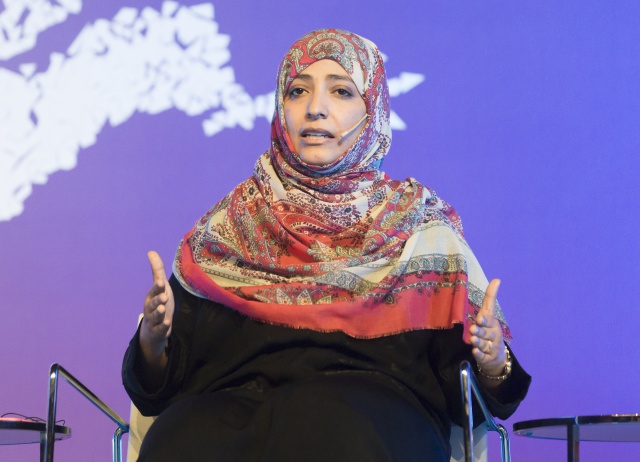
(catwalker / Shutterstock.com)
International Women Human Rights Defenders Day was created by the UN as a way of giving thanks and paying tribute to the women who have worked to increase women’s access to education, safety, and general independence around the world. So today at TMS we are going to talk about 5 women (2 historical and 3 modern women) who worked to ensure equality for women.

(catwalker / Shutterstock.com)
(1) Tawakkol Karman: The first Arab woman, second Muslim, and second youngest person to ever be awarded the Nobel Peace Prize, Tawakkol Karman is the Yemeni journalist who became the face of the 2011 Yemeni uprising. In 2005 she, along with seven other female journalists, formed the human rights group Women Journalists Without Chains (WJWC). The organization was focused “particularly on freedom of opinion and expression, and democratic rights.”
From 2007 to 2010, Karman led demonstrations and sit-ins in Tahrir Square, Sana’a and participated in the 2011 protests known as the Arab Spring. She was a co-recipient of the Nobel Peace Prize in 2011 along with awesome badass women Leymah Gbowee and Ellen Johnson Sirleaf for “for their non-violent struggle for the safety of women and for women’s rights to full participation in peace-building work.” While recently, Karman has had some controversy over her relationship with the Saudi government, she remains one of the most well-known revolutionaries in Yemen.
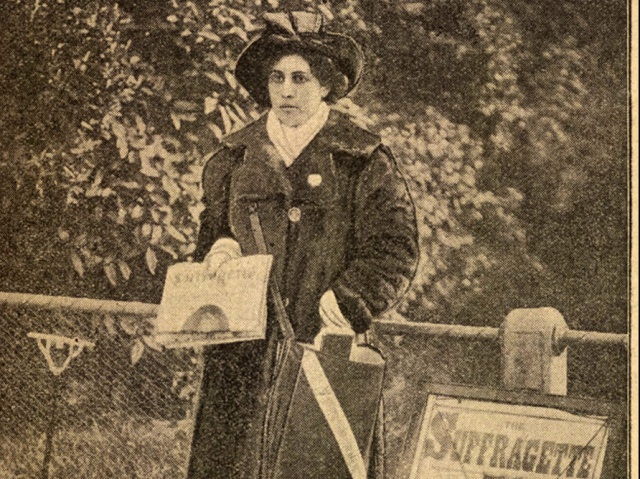
(2) Sophia Duleep Singh: Goddaughter to Queen Victoria and exiled Indian royalty, Sophia Duleep Singh could have lived a life filled with royalty and opulence, but instead found herself called to the Suffragette movement in the United Kingdom. After returning from India in 1909 she joined the Women’s Social and Political Union (WSPU), joining up with Emmeline Pankhurst who had formed the Women’s Franchise League in 1889. Because of her Indian heritage, Singh was outspoken about women’s rights in the British colonies and other nations as well. She would sell suffragette newspapers and pamphlets outside of the home that was gifted to her by Queen Victoria.
She refused to pay taxes and became a pain in the ass to King George V. Singh also participated in many of the anarchist methods at the time, including the manufacturing of bombs. Despite that, she was never arrested, probably because of her own royal heritage and the fact that she had enough influence to create a problem for the Crown if they did. After the death of Pankhurst, she became the head of the Committee of the Suffragette Fellowship. A great book on her: Sophia: Princess, Suffragette, Revolutionary by Anita Anand.
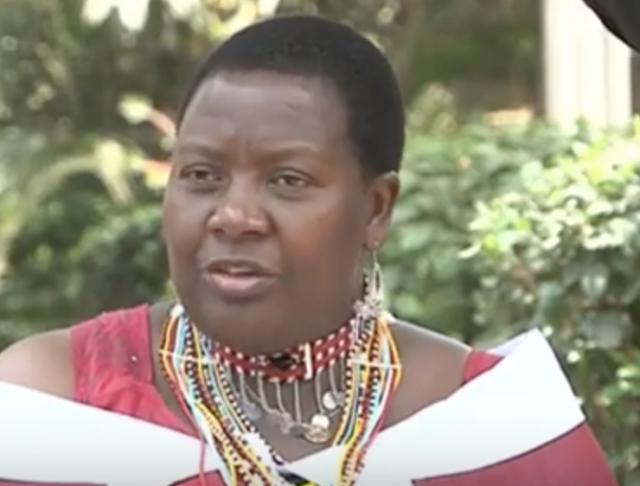
(3) Peris Tobiko: Peris Tobiko was the first female Maasai member of Parliament to be elected in Kenya and was re-elected in 2017. Tobiko’s story is one of amazing triumph and perseverance. Her father wanted all of his children to be educated, including the girls, which was uncommon at the time. As a result, there was a lot of social pressure for Peris and her sisters to be pulled out of school and married off to older men.
Thankfully, teachers intervened and stopped Peris from being married off because they saw how intelligent she was. When school fees became too expensive, she received a scholarship from the Jomo Kenyatta Foundation, an organization that publishes educational books and provides scholarships. Tobiko was then able to eventually attend the University of Nairobi. She first attempted to run for Parliament in 2007, but did not win. “I think the idea of a woman leader was still new to my people,” she said of her 2007 loss. “But the votes I got gave me the confidence to try again.”
She instead worked on getting clean water to communities that needed it, which allowed her to show the community how capable she was. Her victory in 2013 was a game changer and despite getting death threats, Tobiko not only won again in 2017 but has used her platform to help create jobs for women and adult education.
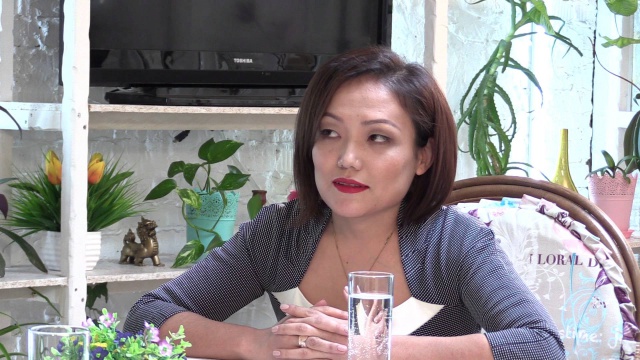
(4) Aida Kasymalieva: The youngest ever female member of the Kyrgyzstan parliament has made child marriage, domestic violence, and bride kidnapping an issue in her country, even when it causes other male members of parliament to walk out. Aida Kasymalieva, 33, worked as a journalist for 10 years writing at length about these issues. In 2005 there were gender quotas put into Kyrgyzstan’s parliament to make sure it included a third of party candidate lists. Currently, Kyrgyzstan has 23 women among its 120 MPs, all of which have put issues dealing with women and girls on the political agenda.
This is something Kasymalieva sees as important since from her experience reporting on the issue, “Men will never think about domestic violence, kidnapping.” While child marriage and bride kidnapping was made illegal in 2016, there is still a lot of work to be done in changing the mentality around the issue. There are also a lot of women and girls who are already involved in these situations as frightening statistics show: “UN Women cites data from 2013 from the NGO Women Support Centre, which said there were at least 11,800 cases of forced abduction of women and girls every year in Kyrgyzstan, with more than 2,000 of those girls reported being raped as well.” Thankfully female MPs like Kasymalieva are working to change things, even if they have to do it without male backing.
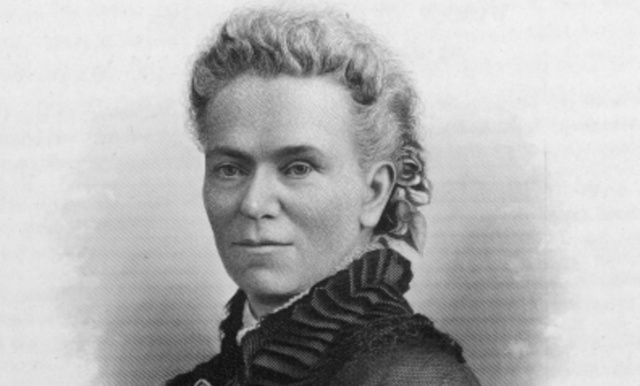
(5) Matilda Joslyn Gage: When I thought about which American suffragette I was going to add to this list my number one choice was instantly Matilda Joslyn Gage. Considered too radical by many other suffragettes at the time, Gage was an unapologetic free thinker who supported not only just women’s right to vote but also provided her home as a stop on the Underground Railroad, supporting Civil Rights for African-Americans and Native peoples. Unlike her contemporaries who argued that women should have the vote because of “their feminine morality,” Gage argued that they deserved suffrage as a “natural right.” Her anti-Christian Church statements also made her enemy of the Woman’s Christian Temperance Union. Fun fact, her daughter Maud Gage Baum was married to L. Frank Baum, who wrote the Wizard of Oz books.
(image: catwalker/Shutterstock.com)
Want more stories like this? Become a subscriber and support the site!
—The Mary Sue has a strict comment policy that forbids, but is not limited to, personal insults toward anyone, hate speech, and trolling.—



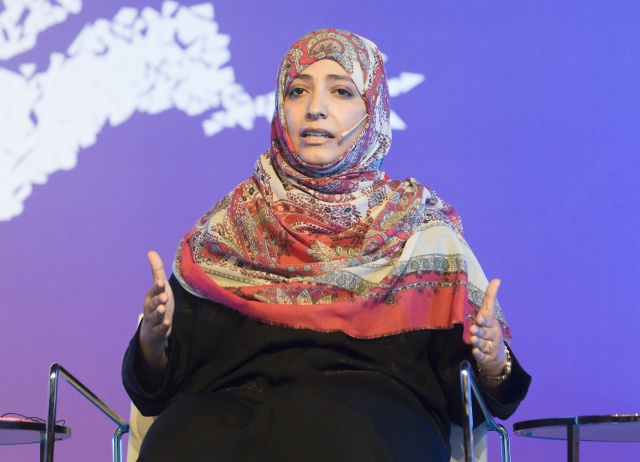






Published: Nov 29, 2017 03:06 pm